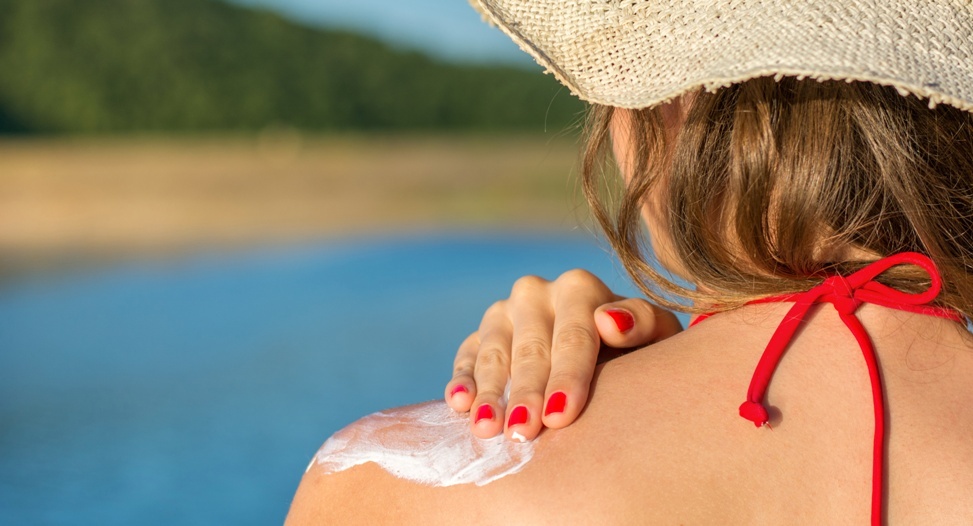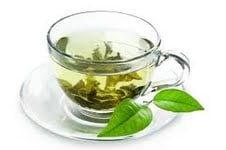I have a friend who has instructions from one of her several physicians to slather herself with SPF 45 sunblock. Every day. All over.
Apparently physical blocking like hats, shirts, long sleeves, etc. is insufficient, because of her autoimmune disease diagnosis. Her physician also said that she should plan to get all of her vitamin D from a bottle for the foreseeable future, since she needs to stay completely out of the sun.
She asked: how do I pick a sunscreen product I feel safe using every day, all over?
Good question.
Integrative Health Blog
Tags: holistic health
If your mental health isn’t 100%, you must take action to improve it now. The first thing to remember is that you’re never alone; many people are struggling like you. One in five young American adults said the pandemic had a significant impact on their mental health, 3.8 million young Americans have had deep suicidal thoughts, and one in six young people has suffered a major depressive episode. Read on for eight unusual ways to address common mental health issues.
1. Make Social Connections with Others
Read MoreTags: natural options, mental health, holistic health, emotional wellbeing
During this time of social distancing, most of us are spending much longer periods of time indoors, inside our homes. As a pediatric physician, I always recommend spending as much time as possible in nature, but not every family has the benefit of a backyard that’s easily accessible.
So, what can we do to improve our living space in the weeks ahead?
One of my favorite studies exploring the relationship of indoor plants and air quality was conducted by NASA back in 1989. I came across this study years ago, and often use it to validate to my husband any spontaneous purchases of Peace Lilies or English Ivy that I just had to have.
Anyway, this 2-year study entitled “Interior Landscape Plants for Indoor Air Pollution Abatement” was a joint effort with the Associated Landscape Contractors of America to see if houseplants could serve as a tool to combat indoor air pollution. You see, at that time, something called “Sick Building Syndrome” was becoming apparent in American workers confined in newly constructed/renovated office buildings. It was acknowledged during this study that various health problems (ranging from itchy eyes to headaches and fatigue) were due to the entrapment of toxic chemicals emitted from synthetic building materials, office equipment and office furnishings.
This is heavy stuff, right? These findings were attributed to 2 things: super-insulation and reduced fresh air exchange.
The Power of Plants
Read More
Human beings tend to overcomplicate a lot of things.
Many of us are guilty of thinking that anything worth achieving requires a lot of time and effort. For example, if we want to lose weight, we must go on a complicated diet program designed by some famous doctor or health guru on the best sellers list. Or, if we want to gain muscle, we have to work out every day for hours. On the other hand, we think if it's easy it’s probably too good to be true or it won’t help, yet many of us want "easy" in this complicated, busy world. The bottom line is, whether easy or hard, the basics of a healthy life need to be adhered to. What are the basics?
-
Healthy eating habits: Eat fruits, vegetables, proteins, minimize sugars
-
Rest/Sleep: Get 8 hours of sleep per night, take naps and vacations
-
Low stress levels: Minimize stress by setting boundaries at work, meditate and be grateful
-
Hydration: Drink enough water (64 oz./day minimum) to sustain life in your body's tissue
-
Personal: Do things that make you feel fulfilled, incorporate things that are your passion and inspire you
-
Work: Do something that provides for the necessities in life, but also makes you feel like you are helping others or contributing to a greater good
But, there is one more important thing you must do for health and that is-
Read MoreTags: holistic health, pain, chiropractic
Food poisoning is an illness in the body from consuming contaminated food or water that results in vomiting and diarrhea. These foodborne or waterborne microorganisms can range from viruses such as hepatitis A, to certain bacteria such as salmonella and Clostridium Botulinum, to parasites and chemicals.
Food poisoning is most common during the hot summer months when temperatures soar and foods made with creams or dairy can become breeding grounds for infecting microbes. Additionally, many foods and contaminated water can carry parasites. Under-cooked foods, sushi, ground beef and unwashed fruits and produce such as lettuce can also harbor bacteria.
Symptoms of Food Poisoning
Read MoreTags: holistic health
Last Updated: July 14, 2021
Some time ago, I blogged about my friend who was instructed by her primary care doctor to use sunscreen daily, all over. At that time, the doctor suggested SPF 45, but he has since retracted that recommendation and now suggests using SPF 100. I have recently delved a little deeper into this issue for several reasons.
In my previous blog, I alluded to the fact that finding a sufficiently protective sunscreen isn’t always so easy for everyone. Active and inactive ingredients can pose problems for some (more on this below). Looking for SPF 100 products can narrow the field even further. Secondly, if physical sun screen creams and lotions leave you looking like an extra from The Walking Dead, you are unlikely to continue applying enough sunscreen.
On the other hand, according to my friend’s doctor, physical screening like hats, shirts, long sleeves, etc. is insufficient because of her autoimmune disease diagnosis. Her physician also suggested that she plan to get all of her vitamin D from a bottle for the foreseeable future since she needs to stay completely out of the sun. Lastly, sun screening technology continues to advance in ways that users should be aware of - and here I mean protective clothing, accessories and supplements. There is a lot online about choosing an appropriate SPF, so I won’t address that in this blog.
She asked: how do I pick a sunscreen product I feel safe using every day, all over?
Good question.
As a holistic physician, I get questions all the time about what may be a healthier alternatives for food, water, cleaning products, skin care products, etc. Enter Environmental Working Group, or EWG.org. The Environmental Working Group is an environmental organization that provides education and research on toxic chemicals, agriculture and public land. They offer Consumer Guides to skin care, pesticides in fruits and vegetables, home cleaning products and more with safety and hazard ratings for ingredients in each category.
Read MoreTags: holistic health, toxins
What does opioid-induced constipation (OIC) have to do with the Super Bowl?
Not much, I would have imagined, but thinking broadly, after the 112 million people who tuned in1 finished laughing, maybe a few hundred thousand viewers might connect the dots.That’s because, in 2014, an estimated two million people in the United States suffered from substance use disorders related to prescription opioid pain medicines2. And nearly half of those on long-term opioids experience OIC3.
At a recent continuing medical education event, I was surprised to find an entire 90 minute session (plus a non-credit mini-session provided by a pharmaceutical company) devoted to opioid-induced constipation.
Apparently, as a nation, we are such avid users of prescription drugs like oxycodone, hydrocodone and codeine, that we must now be concerned about people blowing out their colons because of severe OIC3. This goes far beyond stool softeners and every-so-often laxative use. Bowel perforation is certainly no laughing matter.
But the topic made me think of the common complaint of garden-variety constipation, and so I polled my colleagues at NIHA for their favorite approaches to constipation.
Read MoreTags: holistic health, constipation
Although we may eat and drink our way through the days between Thanksgiving and New Year’s Day, almost to a person, we wake up on January 1st with every intention of doing things differently for throughout the coming year.
But what about just trying to clear the cobwebs, wash out the alcohol, get past the effects of all the salted and carmelized nuts, cheese plates, cookies and eggnog, and get moving after more than a few missed work-outs? You know, a jump-start to get to the lifestyle changes you plan to make for the year.
Here is a plan to obliterate the lingering effects of the Top Five Holiday Indulgences.
Read More
Tags: holistic health
Krista Merwede LMT
It seems to be an especially brutal flu season this year. Deep, bronchial coughs echo through the aisles of the grocery store, Snuffaluffagus is answering the phone at the bank and sneezes flutter over cubicle walls with hot zone wings. If you or one of your beloveds is suffering from respiratory congestion it is a good time to start thinking of a steaming mug of medicinal tea, ideally full of honey and steeped with love. While there are plenty of great teas on the market - Breathe Easy or Throat Coast by Traditional Medicinals are personal favorites - being ill is an opportunity to better get to know individual herbs and also take a small, comfortable step towards making your own natural home remedies. Safety is always the number-one concern, so please research your herbs before use to make sure they do not conflict with any current medication or doctor's orders.
In this blog we will discuss several herbs that you can purchase locally and infuse at home. An infusion is a different word for steeping, or boiling water and letting a teabag sit in the water for ten minutes to allow the herbal chemicals to release out into the water. Another thing to consider is taste; do not hesitate if you need to add something for flavor such as chamomile or peppermint to make the brew more acceptable to your palate.
Tags: natural remedies, herbals, holistic health, massage
As part of the holistic and biological dentistry approach to dental care, there are herbals which are useful as natural ways to promote good dental health.
Most of us have experienced the cleansing of a salt water rinse after a dental appointment or during times of mouth pain. The gentle swishing of the water and the abrasiveness of the salt cleanse and promote healing.
This being said, there are many wonderful herbs that you can add to your salt water-rinse to take it to another level and address the more individual challenge you may be having. A good time for a salt water rinse is 3 to 5 minutes, but if you have a bit more time on your hands you may want to consider the technique of oil pulling.
Oil Pulling - A Natural Option for Dental Health
Tags: herbals, biological dentistry, holistic health, dental health
.png?width=305&height=132&name=NIHAlogoBLUE_3_transparent%20(2).png)









